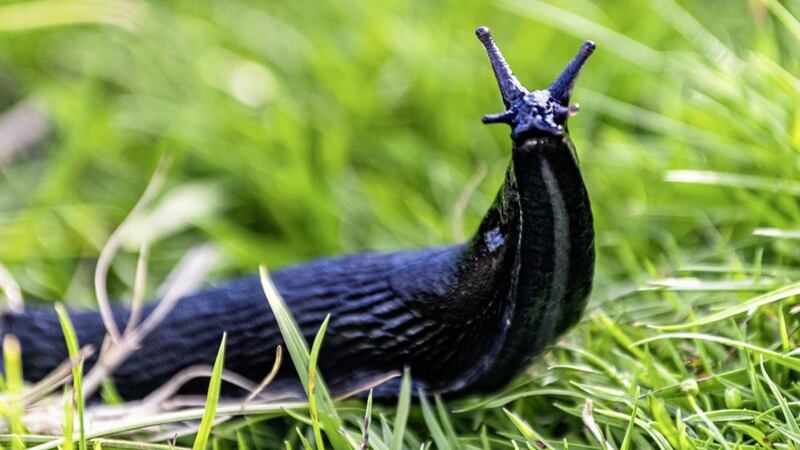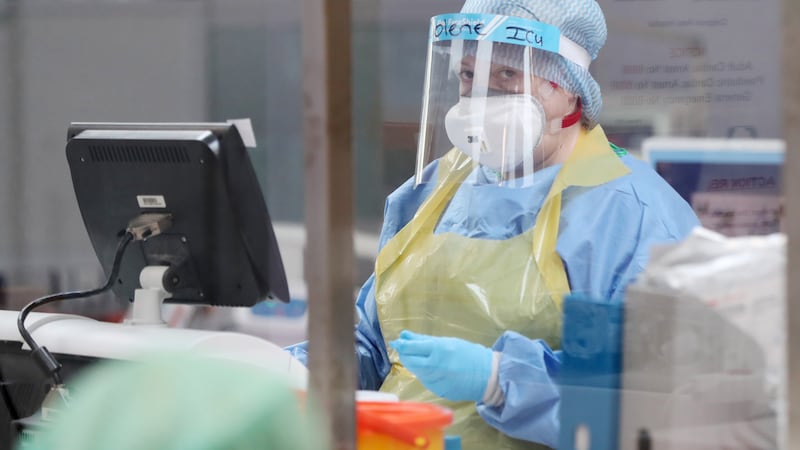THE near two-year political impasse at Stormont has led to a delay in the implementation of many new policies and projects, with an absence of ministers leaving civil servants unable to make decisions that are lawfully watertight.
One of latest examples where changes to the law in Britain won’t be mirrored with similar moves on this side of the Irish Sea is in the banning of metaldehyde in slug pellets.
A week before Christmas, British Environment Minister Michael Gove announced a ban on the outdoor use of metaldehyde, a pesticide used to control slugs in a range of crops and in gardens.
The decision to prohibit its use follows advice from the Expert Committee on Pesticides and the Health and Safety Executive that metaldehyde poses an unacceptable risk to birds and mammals. The new restrictions on metaldehyde will also reduce the possibility of the pesticide contaminating drinking water.
In an agricultural context, slugs can cause significant damage to plants and crops, particularly potatoes, cereals and oil seed rape. However, there are other ways to mitigate their impact through soil preparation. For example, sowing the seed deeper into the soil may prevent the slugs from reaching them. There are also alternative pesticides containing ferric phosphate which provide effective control of slugs and snails without carrying the same risks to wildlife.
The ban will be phased in over 18 months to give growers time to adjust to other methods of slug control. In Britain, it will be legal to sell metaldehyde products for outdoor use for the next six months, with use of the products then allowed for a further 12 months.
However, here in the north it appears there will be no restrictions on slug pellets containing metaldehyde for the foreseeable future.
A spokesman for the Department of Agriculture, Environment and Rural Affairs (Daera) told The Casual Gardener that in the absence of an executive, its powers were limited.
Daera has given consideration to a ban but currently there’s no-one in the department with the authority to impose it.
“Daera has concluded that the removal of the authorisation for the use of metaldehyde, other than in permanent glasshouses, is a substantive decision which would normally require ministerial approval,” the spokesman said.
“Therefore, at present Daera has no plans to ban the use of metaldehyde.”
Personally, I’ve never used slug pellets, preferring instead to employ organic methods that pose no threat to wildlife, with the obvious exception of slugs.
For those still inclined to use controls containing metaldehyde, may I suggest some self-imposed abstinence?
If you are troubled by slugs to the extent that you feel it necessary to employ a chemical control then perhaps it’s time to reassess how you garden. A healthier garden ecology where you encourage wildlife that prey on slugs, such as hedgehogs, frogs and birds, is much better than resorting to environmentally damaging products.
Biological controls are available in the form of nematodes, which usually come via mail order and are mixed up into a solution then used as a drench on the soil around vulnerable plants. The nematodes penetrate the slug's body and release bacteria to kill the slugs.
Copper tape, ring or mats can also be an effective if relatively expensive deterrent. It’s said that neither slugs or snails like crossing copper because doing so generates an electrical charge that irritates their slime glands.
Ducks and geese will do a marvellous job but can also make a mess of your garden. Finally, one of the most effective methods is hand removal, with night-time forays armed with a torch proving most successful. Any slugs collected should be placed in hot water then placed on the bird table.








